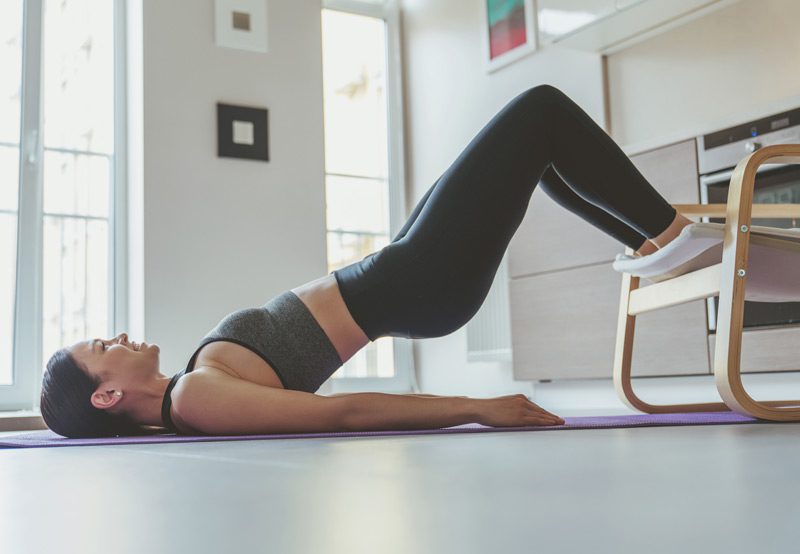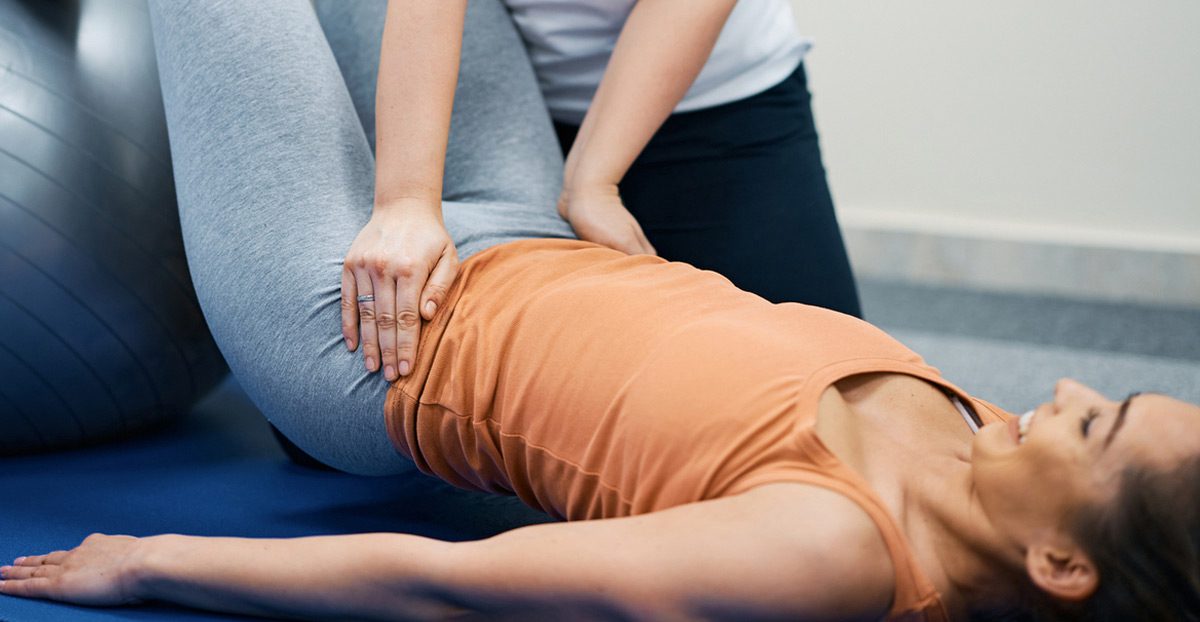

Pelvic floor therapy is a non-invasive treatment designed to strengthen, relax, and improve the function of the muscles, ligaments, and connective tissues that support the pelvic organs. This type of therapy is particularly effective for individuals experiencing chronic pelvic pain conditions, especially those exacerbated by menopause. Pelvic floor therapy aims to address pelvic pain, improve urinary and bowel control, and enhance sexual function by targeting the pelvic muscles.
For women dealing with conditions such as chronic pelvic pain syndrome (CPPS), endometriosis, interstitial cystitis (IC), and other pelvic floor dysfunctions, this therapy offers an alternative or complementary treatment to improve quality of life.
How Pelvic Floor Therapy Helps with Pelvic Pain Conditions
- Chronic Pelvic Pain Syndrome (CPPS): CPPS is a common and often debilitating condition where individuals experience persistent pelvic pain without a clear cause. The pelvic floor muscles can become tight or weakened, contributing to pain and discomfort. Pelvic floor therapy targets these muscles, using techniques such as manual therapy, relaxation exercises, and biofeedback to reduce muscle tension and improve pelvic floor function. By relaxing the pelvic muscles and promoting better coordination, pelvic floor therapy helps reduce pain and discomfort associated with CPPS, improving overall pelvic health.
- Interstitial Cystitis (IC): IC, also known as painful bladder syndrome, causes bladder and pelvic pain, urinary urgency, and frequency. Pelvic floor therapy can be beneficial for managing IC symptoms by addressing muscle tightness in the pelvic floor, which often accompanies the condition. Therapy involves techniques to relax the pelvic muscles, improve bladder control, and reduce the pain and discomfort caused by IC. By strengthening and relaxing the pelvic floor, women with IC can experience relief from frequent urination, pain, and the urgency often linked to the condition.

- Pelvic Floor Dysfunction: Pelvic floor dysfunction occurs when the muscles and ligaments of the pelvic floor become weak, tight, or uncoordinated, leading to a variety of symptoms, including pelvic pain, urinary incontinence, and sexual discomfort. Pelvic floor therapy is designed to improve muscle function, flexibility, and strength. Specific exercises are used to help relax overactive muscles, strengthen weak muscles, and improve coordination between the pelvic muscles and other parts of the body. This can help alleviate pain and dysfunction, promoting better pelvic health and comfort.
- Pudendal Neuralgia (Pudendal Nerve Pain): Pudendal neuralgia is caused by irritation or compression of the pudendal nerve, which can result in pain in the pelvic area, including the genital, perineal, and anal regions. Pelvic floor therapy can help manage pudendal neuralgia by releasing tension in the muscles surrounding the pudendal nerve. By focusing on muscle relaxation, pelvic floor therapy can reduce pressure on the pudendal nerve and alleviate pain, improving comfort and function for individuals affected by this condition.
- Vulvodynia: Vulvodynia is characterized by chronic pain in the vulvar region, often resulting from muscle dysfunction, nerve irritation, or pelvic floor abnormalities. Pelvic floor therapy can help by relaxing the pelvic floor muscles and reducing the overactivity that contributes to vulvar pain. Specific exercises and manual therapy can help improve blood flow, muscle tone, and nerve function in the affected areas, reducing pain and improving sexual function. Women suffering from vulvodynia often experience relief after pelvic floor therapy, allowing them to resume normal activities without discomfort.
Next Steps
If you’re experiencing pelvic pain due to any of the conditions mentioned, pelvic floor therapy may be an effective treatment option. It is essential to consult with a healthcare provider specializing in pelvic health to determine if pelvic floor therapy is right for you. A tailored treatment plan, including individualized exercises and techniques, can help improve pelvic muscle function, reduce pain, and enhance your overall well-being.
